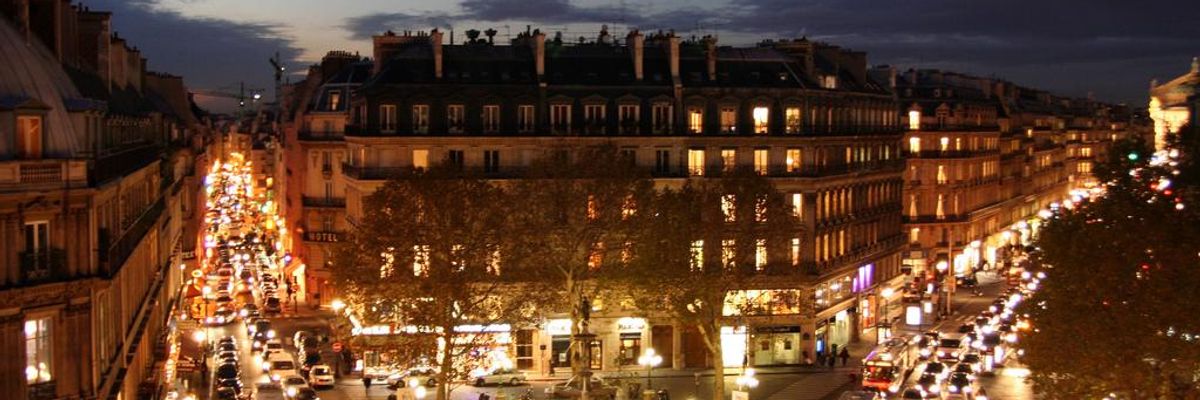Receiving great applause from climate advocates, Paris officials announced a new goal on Thursday to ban gas-powered cars from its streets by 2030.
The proposal would accelerate existing efforts to reduce air pollution in the city after French President Emmanuel Macron promised to ban the sale of vehicles with combustion engines by 2040.
Under the rule, only electric cars would be allowed in the city. Paris is already home to an electric car-sharing service, Autolib, which has become wildly popular since its launch in 2011 with the goal of reducing carbon emissions by 20 percent over a decade.
"Time is simply pressing," said Christophe Nadjovski, Paris's deputy mayor of transport, in an interview with the radio station France Info. "This is about planning for the long term with a strategy that will reduce greenhouse gases. Transport is one of the main greenhouse gas producers...so we are planning an exit from combustion engine vehicles, or fossil-energy vehicles."
Mayor Anne Hidalgo also said Thursday that diesel vehicles would be banned in the city by 2024. She has established bike paths and new bus lanes in an effort to reduce the city's dependence on cars.
The city's efforts to cut carbon emissions from cars follow a rise in air pollution, with the air quality reaching an "alert threshold" last year according to the pollution-monitoring group Airparif.
Banning combustion engines is the latest of several steps authorities have taken to combat smog. Paris officials have taken to making public transportation free on days when pollution levels are especially high.
And Paris City Hall called its third car-free day, banning automobiles in more than 40 square miles for most of October 3. The first car-free day, held two years ago, saw a 40 percent decrease in exhaust emissions.
"We are changing the model of mobility. By offering alternatives, we can do without a personal car. That's my goal," said Hidalgo in an interview with Le Parisian on the city's anti-pollution measures.

